Irrational's effort is a masterpiece of interactive world-building and storytelling
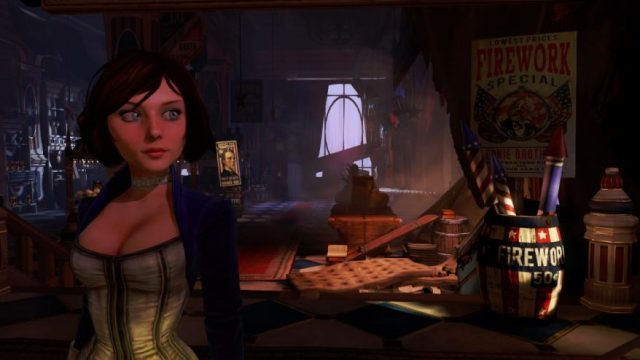
Spoilers covering roughly the first third of BioShock Infinitefollow. Nothing should be surprising to anyone who has followed the game through trailers and interviews up to this point, but those wishing to experience the beginning of the game completely fresh should consider themselves warned.
The first thing I did after I finished BioShock Infinite was sit in front of the screen for a few minutes thinking about what I had just seen. The second thing I did after I finishedBioShock Infinite was play the ending section a second time, to make sure I had understood what I saw the first time (turns out I hadn't). The third thing I did after I beat BioShock Infinite was try to sleep, but I instead spent the next few hours going over the whole game in my head, even though it was after 2:30 in the morning and I was flying out for the start of a PAX East/Game Developers Conference megatrip the next day.
I'm not going to spoil the details of the thought-provoking, time-and-space-bending, utterly satisfying ending of BioShock Infinite here, which means I can't really directly discuss what happens for any of the last third of the 13 or so hours I spent playing the game (this didn't include some of the optional quests and hidden bonuses).
What I will say is that the ending is literally jaw-dropping. I am actually using that term correctly—there were two distinct times that my jaw involuntarily fell open when I realized what was happening in front of me. That might sound a little dramatic (and the late hour that I finished the frantic prerelease playthrough may have contributed to it), but looking back, I think it was the right reaction.
Infinite's ending is a bit more open-ended than the famously mind-blowing ending of the originalBioShock. Many of the narrative choices are going to provoke a lot of discussion and theorizing among fans. That's likely by design, and it ends up being much more intriguing than an ending that simply lays out every answer directly.
It's rare to play a game with a narrative that comes together as well as BioShock Infinite's. It's the kind of ending that seems inevitable in retrospect, yet hard to see coming before it is suddenly barreling toward you. Then, when it hits, it makes you look at everything you experienced beforehand a little differently, and it makes you eager to reanalyze what you thought you knew before.
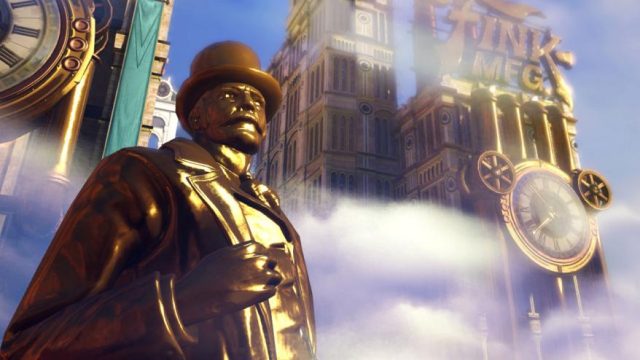
Of course, here I am getting ahead of myself, rambling on about the ending to a game that I haven't even begun to describe yet (which should in itself tell you something about how I regard that conclusion). Put simply, BioShock Infinite is an early contender for game of the year, a masterpiece of design and world-building which shows the care and attention to detail inherent in its nearly five-year development process.
Welcome to Columbia
The most appealing part of BioShock Infinite is simply exploring the floating city of Columbia, a world that comes to life through details both incidental and unavoidable. Originally designed as a part of the World's Columbian Exposition at the end of the 19th century, Columbia went on to travel the country, docking to pick up new pilgrims that were attracted by the city's jingoistic reverence for America's founding fathers and their ideals. Or at least their ideals as interpreted by Samuel Comstock, a wholly American strain of prophet who demands an explicitly religious reverence from Columbia's citizens. When China's Boxer Rebellion took a number of Americans hostage at the turn of the 20th Century, Columbia rejected the more conciliatory position of the US government, raining fire on the Chinese from above and formally seceding from the country it revered over the issue.
| Our Velocity Micro gaming rig | |
| OS | Microsoft® Windows® 7 Home Premium 64-bit |
|---|---|
| CPU | Intel® Core i7 2700k processor, Hyperclocked |
| RAM | Patriot 8GB 1600Mhz PXD38G1600LLK Memory |
| VIDEO | EVGA® GTX580 1536MB 015-P3-150-AR |
| MOTHERBOARD | Asus® P8Z68-V Pro Gen3 Motherboard |
| STORAGE | Patriot® 120GB Wildfire SATAIII SSD PW120GS25SSDR in RAID 0 |
| OPTICAL DRIVE | LG® UH12LS28 |
| POWER | Corsair® Professional Series HX1050 Power Supply |
| CASE | Velocity Micro™ GX2-W Silver |
| KEYBOARD | Velocity Micro™ Slim Multimedia Keyboard - Black |
| MOUSE | Velocity Micro™ Optical Mouse - Black |
This is all background for the entry of protagonist Booker Dewitt, a blank slate coming as a stranger into the fully formed society of Columbia in 1912. With only the vague goal to "Bring us the girl and wipe away the debt," Dewitt ends up on a search for Elizabeth, Comstock's daughter and the "lamb of Columbia" who seems fated to take over for her father. Rescuing Elizabeth begins a companionship between Elizabeth and Dewitt that drags the latter into the mystery of the "tears," holes to other points in time and space that Elizabeth can manipulate somewhat unreliably. As the game goes on, Dewitt gets drawn into the mystery of those tears and into the politics of the Vox Populi, a rebel group looking to rise up against the cruel ruling class.
In prerelease previews of Infinite much has been made of the relationship between Dewitt and Elizabeth, and the way her presence at your side gives you an emotional tie to the world around you. I'll admit that it's easy to grow fond of Elizabeth as the two of you work through the game's mysteries together, especially if you take the time to watch her ever-changing facial expressions and body language during the frequent banter between her and Dewitt. That said, I found the people and places that made up the world of Columbia to be the more compelling part of the game.
The original BioShock was a dead and lonely place, whose story was told primarily through audio logs and bits of ephemera left behind by its once thriving civilization. Infinite also has these bits of recorded history hidden about, and they're a great way to get a feel for characters' motivations and back story in a way that's minimally pedantic or expository. But it's even more satisfying to learn about the world just by observing the scenery and the people going about their everyday lives, all rendered with wonderful art and voice work.
Around one corner, you may find a map showing the former landing schedule for Columbia as it traveled around the country. At a nearby outdoor cafe, a couple talks disdainfully about the Vox Populi as a "foreign sounding" menace, echoing the message of a Vox shooting gallery at a nearby fair. Down the street from them, past the giant, reverent statue of Comstock, a barbershop quartet sings a beautifully old-fashioned yet seemingly out-of-place version of "God Only Knows" by the Beach Boys. Down an alley from them, in front of faded propaganda posters, schoolchildren play and sing a schoolyard rhyme about falling from Columbia's heights to the ground below.
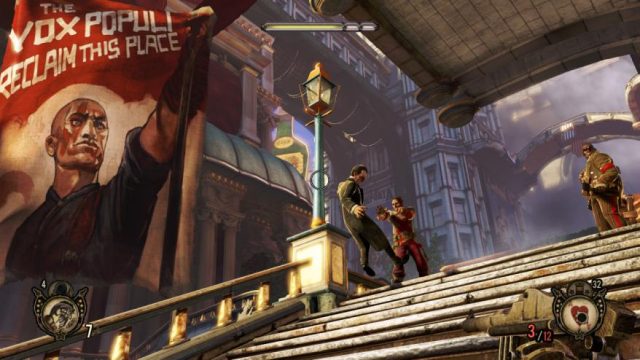
It's these and hundreds of other little touches that make simply wandering around and taking in the details of Columbia the most satisfying part of BioShock Infinite. Despite a tight deadline imposed by my travel schedule, I couldn't help but wander through practically every optional nook and cranny I could find, just to absorb every last bit of the culture I had been thrown into. Part of me thinks the game may have worked even better simply as a first-person exploration of this fleshed out and wholly unique culture, without the requisite shooting action (don't worry—I'll get to discussing that soon).
Infinite also differs from the original BioShock in taking away much of the player's sense of choice. There isn't the kind of all-encompassing moral decision-making that was embodied by the option to harvest or save the Little Sisters in the original game. Instead, Infinite's story is almost entirely linear and unchangeable, with only a few incidental decisions that you can make to alter how the characters evolve and events unfold. Players that are accustomed to the more freeform and player-directed narratives of games like Mass Effect or even Skyrim may find this a bit limiting. All I'll say is that the decision works for the kind of story Infinite is trying to tell, and being led along a tightly paced tale from a master storyteller can be more satisfying than wandering aimlessly through a scattered narrative that you control more fully.
One of the most unavoidable parts of this narrative is a thick and ever-present racism that seems to permeate every strata of Columbian society. Far from being portrayed sympathetically, I first thought of this presentation as a clunky marker that Comstock and the Columbia he rules were the obvious "bad guys" who deserved whatever Dewitt and Elizabeth gave them (surprisingly gender-neutral bad guys, though; there's a good number of female police and soldiers for a society based on America from 100 years in the past). As the game went on, though, I began to see this aspect of Columbia as more of an unflinchingly frank look at an ugly strain that was still present during the game's time period. Regardless, it's the kind of portrayal that's likely to lead to a lot of discussion about the role of race in gaming and in society as a whole.
Serviceable shooting
It may seem odd that I've gotten this far into a review of a first-person shooter without actually going into the actual shooting. That's because the combat is probably the least interesting part ofBioShock Infinite. That doesn't mean that it's badly executed or somehow feels like a chore to be endured rather than something to be enjoyed. Instead, it provides some serviceable action that breaks up the more compelling act of simply exploring the world of Columbia.
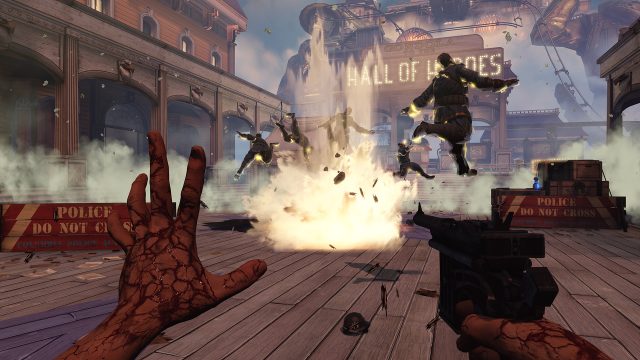
The injected plasmid powers from BioShock have been replaced this time around by highly similar "Vigors"—drinkable potions that let you do anything from summoning a flock of attacking ravens to briefly recruiting antagonistic men and machines to your aid. Integrating these bits of magic into your arsenal adds a great deal in the way of strategic options, and it lets you tailor your own decisions to offense or defense (even more so as you upgrade each ability). There's a good variety of weapons available, though you can only carry two at a time, meaning you're often left searching in vain for another copy of a weapon you gave up just a few minutes ago.
In the place of BioShock's Big Daddies, Infinite introduces a number of mechanical wonders that serve as sort of mini-mini-bosses, from motorized, chain-gun wielding animatronic versions of the founding fathers to lumbering androids with giant metal arms. They're all well-designed, but they're relatively easy to dispatch once you learn their basic patterns and weaknesses and none of them inspire the sheer sense of awe-inspiring terror brought about by the pressurized suits of a lumbering Big Daddy.
Part of this comes from the sense that there's very little at stake in each battle. Whenever you die inBioShock Infinite, you're brought back to life almost immediately, usually thanks to Elizabeth's ministrations (which are even more convenient than the occasional Vita-chambers from the first game). These resets cost you a little of your accumulated money and give the enemies a chance to regain some of their health, but the penalties are not enough to really discourage a guns-blazing, devil-may-care attitude that minimizes the importance of careful cover (at least in my playthrough on Normal difficulty). Enemies act intelligently enough, and the game provides plenty of options for tactical positioning (including hooking on to a fun-to-use sky rail system), but the low penalty for death limits how crucial these additions feel.
The sense of in-battle tension is also lessened by the way Elizabeth constantly seems able to dig up things like health packs and packs of Vigor-enabling salt in the middle of battles, throwing them to you just as they're needed during a tough firefight. On the one hand, this is much less annoying than having to retreat and hunt down these things for yourself during a heated battle. On the other hand, it's much easier and less engaging than being forced to retreat and hunt down these things for yourself during a heated battle.
Elizabeth can also help by opening up all-too-convenient tears located around many of the game's battlefields, uncovering a crucial bit of cover or a case of health packs when you ask her too, for instance. It's a good idea in theory, but in practice I found it to be distracting. Calling in Elizabeth's help requires a brief pause from shooting and means splitting your attention away from the battle at hand. It felt like a tacked-on feature, and it made me wonder why these torn-open pieces of the environment couldn't simply have been present without Elizabeth's help.
Thankfully, Infinite's battle system doesn't wear out its welcome or weigh down the game's excellent pacing. Infinite avoids the problem of near-endless waves of identical enemies that plagues so many shooters these days. The bits of shooting action are spaced and timed to serve as gentle punctuation marks that break up the story rather than full stops that bring it to a grinding halt. Battles are characterized by small groups of soldiers and police who generally feel like they actually belong at those places in those numbers, and there are precious few moments where you'll spend 15 minutes or more just mindlessly tearing down overwhelming streams of enemies.
Just play it
Frankly, pretty much everything else I really want to say about BioShock Infinite would spoil what I consider to be one of the best stories ever told through the gaming medium, and that would be a shame. For now, I urge you to just experience the world of Columbia and come back and talk with me about it when you've finished it. Because believe me, this is one you're going to be talking about, and thinking about, well after it's done.
The Good
- A wonderfully detailed, vibrant alternate history world
- Wonderful pacing and excellent storytelling
- An ending that brings everything together beautifully
- Well fleshed-out characters that forge meaningful relationships
- Combat doesn't wear out its welcome with a lot of filler
The Bad
- Shooting is nothing to write home about
- Lack of gameplay tension due to overly forgiving death/revival process
The Ugly
- People who are gonna flood message boards with spoilers as soon as possible
Verdict: Buy it before someone spoils it.
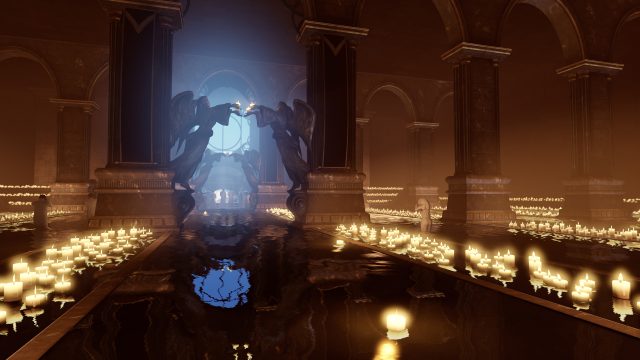

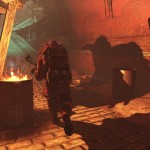

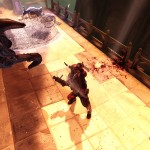




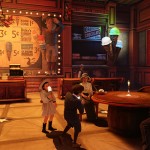







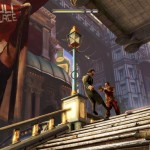
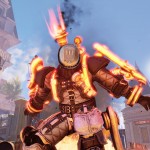
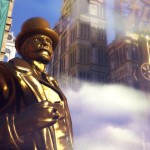

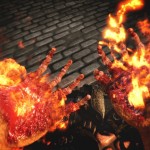


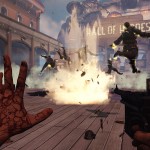


















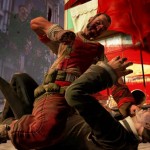


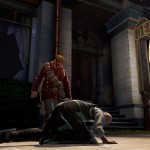

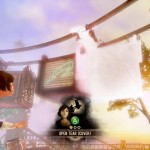


No comments:
Post a Comment